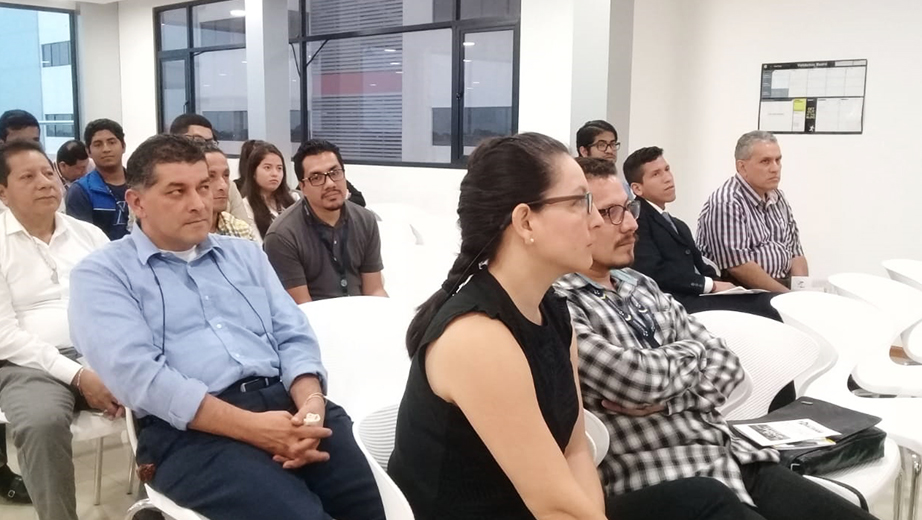Noticia
Rights and obligations of university students
Representatives of the students federation, professors, students and administrative staff attended a talk on the rights and responsibilities of university students.
Jeffrey Zuñiga, attorney, said "for a right to be enforceable, it must be recognized as one". He recalled that UPS was founded in 1994 and is a non-profit institution, recognized and acting under the regulations of the Higher Education Council (CES), the Higher Education Quality Assurance Council (CEAACES) and the Secretariat of Higher Education, Science, Technology and Innovation (SENESCYT). Attendees analyzed articles 26, 298, 343, 344, 345, 350 and 351 of the Constitution where it says that education is people´s right.
Silvia Montalván,spoke about the rights and obligations established in the Organic Law of Higher Education (LOES) as well as the statute of the University.
She highlighted two regulations. The first refers to the fact that students must be treated in an equal and impartial manner at all times, without discrimination of gender, creed, sexual orientation, ethnicity, culture, political preference, socioeconomic status, disability or any other form of exclusion. The second states that they have the right to receive quality university education, which ensures effective knowledge of their duties and citizens' rights, of the socioeconomic, cultural and ecological reality of the country, as well as the command of a foreign language and the effective management of computer tools.
"When a problem arises, dialogue is voluntary and confidential, a third person intervenes as a mediator and facilitates this process between the parties," said Edmundo León, referring to the type of sanctions established in the LOES ranging from oral or written reprimands. "Serious sanctions imply the temporary suspension or loss of one or several subjects and even the definitive separation from institution," he said. Finally, the affirmative action policies that included the promotion of values, equal treatment, physical adjustments, access to services, income, permanence, among others, were also discussed.
Contenidos Relacionados
Contenidos Relacionados
Noticias Relacionadas
Noticias Relacionadas







Follow us
Follow us